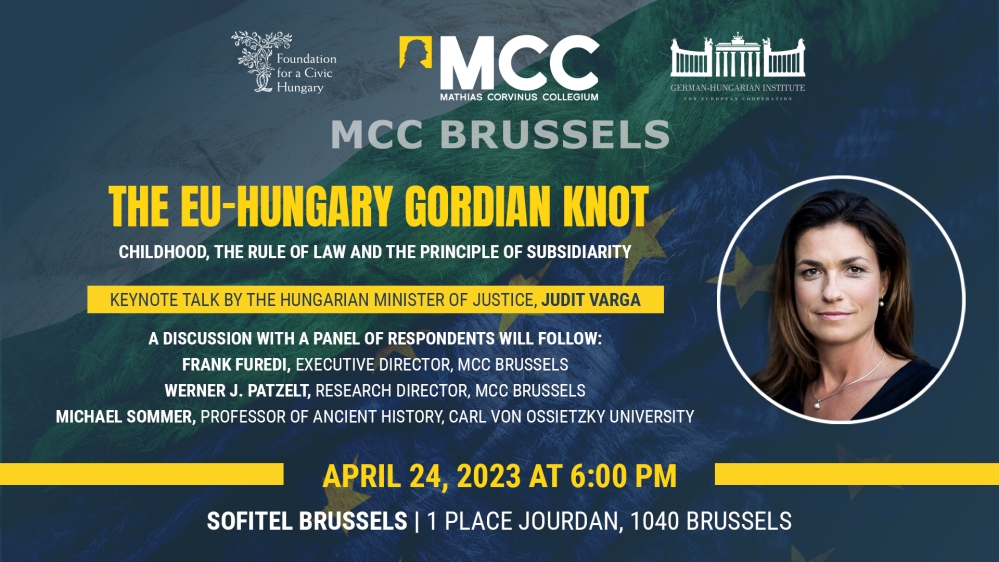Keynote speech by Judit Varga, Minister of Justice for Hungary
6PM, Monday, 24 April, 2023
Sofitel Brussels, 1 Place Jourdan, 1040 Bruxelles
Due to high demand, registrations for this event are now closed. If you wish to be added to the waiting list, please fill in the form here. Please note you cannot gain entry without a confirmed registration so please do not attend if you have not received one.
Press enquiries to john.obrien@brussels.mcc.hu
In the latest of a series of battles between the European Union and Hungary, 15 member-states including Germany, France and Belgium have joined an EU lawsuit against Hungary over a law aiming to limit the exposure of children to content promoting gender ideology. Hungary is accused of breaching fundamental EU values and discriminating against LGBT minorities.
This disagreement raises a fundamental question that arises repeatedly in disagreements between the EU and sovereign states: Who decides? In recent years, this question has been raised time and again in the EU: Who decides the specifics of a legal system for a country? Who decides where decisions about foreign policy are taken? Who decides what values our children are taught in schools?
The principle of subsidiarity has long been a central principle of the Union. It insists that decisions should be taken centrally by EU bodies only when they involve questions that cannot be better answered at the local level. The disagreements between the EU and Hungary often hinge around which issues should be decided by EU organisations, and which should be decided by democratically elected governments.
Few issues are more central to nationhood and national culture than those surrounding the education of children. For a long time, it was assumed that subsidiarity meant that national governments had the right to decide on these central questions concerning the education and socialisation of children. Today, by contrast, many call for the EU to be more assertive in educating children to support ‘EU values’. The outcome of these debates has been that EU organisations believe they have the right to decide about what children should be taught, what they should read in school, and which values they should be brought up with. Hungary is a flashpoint for a wide range of people across Europe who believe that the EU should not decide on these questions.
What, therefore, is the proper relationship between national government and the EU on questions of education? What does the principle of subsidiarity require for this issue? Are questions of education and values central to the rule of law? Who decides?
Join MCC Brussels for this event in conjunction with German-Hungarian Institute for European Cooperation and Foundation for a Civic Hungary. It will feature a keynote talk by the Hungarian Minister of Justice, Judit Varga. A discussion with a panel of respondents will follow:
- Prof. Frank Furedi, Executive Director, MCC Brussels
- Prof. Werner J. Patzelt, Research Director, MCC Brussels
- Prof. Michael Sommer, Professor of Ancient History, Carl von Ossietzky University of Oldenburg
6PM, Monday, 24 April, 2023
Sofitel Brussels, 1 Place Jourdan, 1040 Bruxelles
Due to high demand, registrations for this event are now closed. If you wish to be added to the waiting list, please fill in the form here. Please note you cannot gain entry without a confirmed registration so please do not attend if you have not received one.
Press enquiries to john.obrien@brussels.mcc.hu


